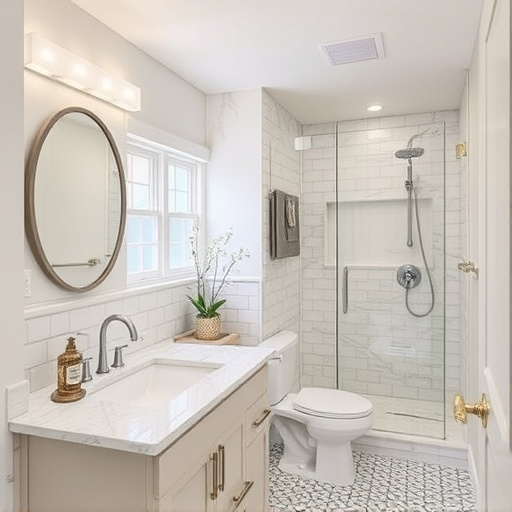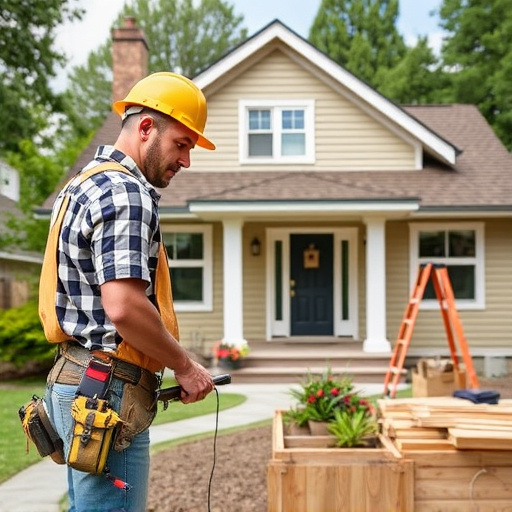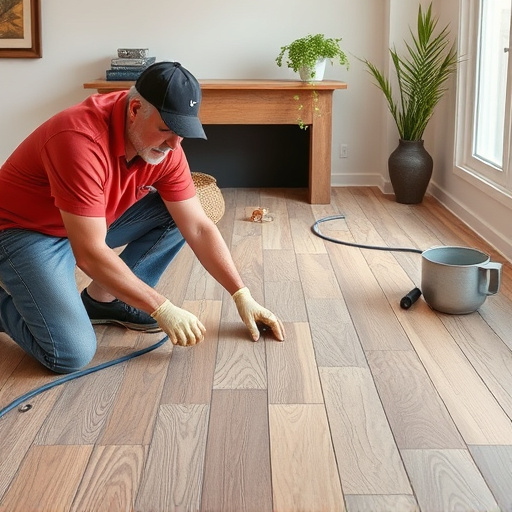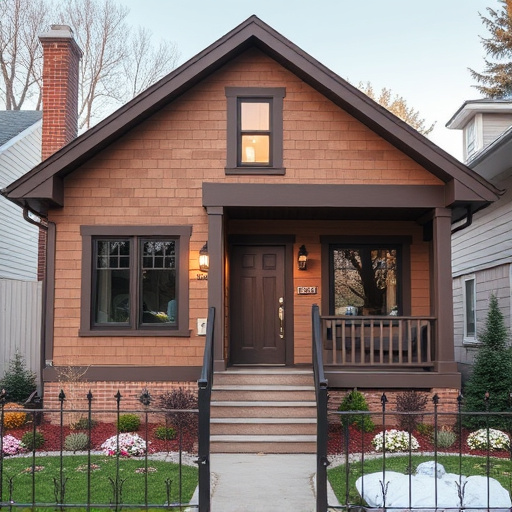Before tackling a bathroom upgrade, critically assess your skills, time, and project scope. While DIY is possible for cosmetic changes, plumbing, electrical work, and complex tiling require professional knowledge and tools. Evaluating hardware store offerings or contractor expertise ensures the best outcome based on skill level and local building codes, saving time and future repairs.
“Are you ready to transform your bathroom but unsure where to start? Choosing between DIY and hiring a contractor is a significant decision for any home improvement project. This article guides you through the process, offering insights into assessing your skills, time, and resources for a DIY bathroom upgrade, or understanding the advantages and potential drawbacks of professional assistance. By the end, you’ll be equipped to make an informed choice, ensuring your bathroom renovation is a successful and satisfying experience.”
- Assessing Your Skills and Time Commitment for a DIY Bathroom Upgrade
- – Determining project complexity
- – Evaluating available tools and materials
Assessing Your Skills and Time Commitment for a DIY Bathroom Upgrade
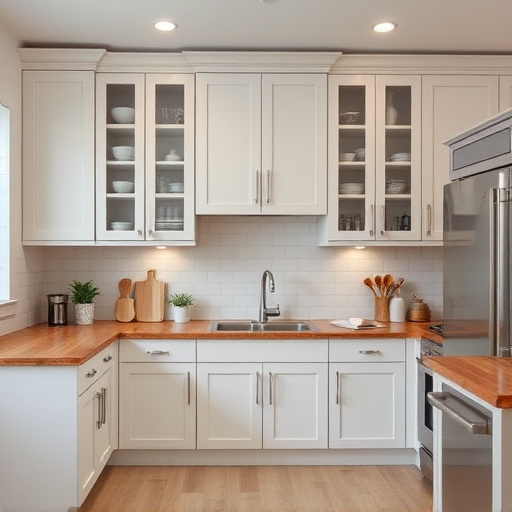
Assessing your skills and time commitment is a crucial step before tackling a DIY bathroom upgrade. While many homeowners embrace the challenge of transforming their spaces themselves, it’s essential to be honest about your capabilities and available hours. A successful do-it-yourself project requires a blend of physical prowess, tool proficiency, and design sensibilities that might stretch beyond comfortable boundaries.
Consider the scope of work: is it a simple cosmetic update or a complete bathroom overhaul involving plumbing, electrical work, and customized tile installations? Matching your skills against these tasks is key. Even with a clear vision for your customized home renovations, realistically assessing time constraints ensures you don’t bite off more than you can chew. After all, a poorly executed DIY project may require professional intervention down the line, negating any potential cost savings or sense of accomplishment.
– Determining project complexity

When considering a DIY approach for your bathroom upgrade or turning to professional contractors, understanding the project’s complexity is paramount. Bathrooms are intricate spaces that involve plumbing, tiling, and often electrical work. A simple facelift might include painting and replacing fixtures, which can be manageable for an experienced DIYer. However, more involved projects like removing old tiles, installing new piping, or adding complex tile designs require specific skills and knowledge to ensure a safe and effective renovation.
For instance, exterior painting in bathrooms isn’t just about aesthetics; it’s crucial for waterproofing and maintaining the room’s integrity. Similarly, residential renovations involving multiple rooms demand coordination and expertise to manage various tradespeople effectively. While DIY enthusiasts can tackle smaller tasks, major bathroom upgrades may be better left to licensed contractors who can handle every aspect competently, saving you time and potential future repairs.
– Evaluating available tools and materials
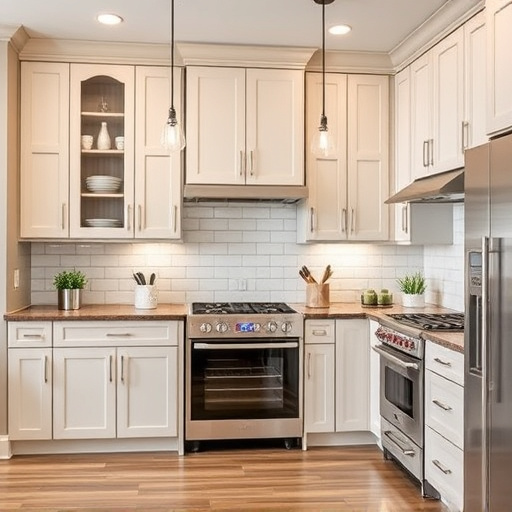
When considering a DIY bathroom upgrade or hiring a contractor, evaluating available tools and materials is a crucial step. For those opting for a DIY approach, it’s essential to assess your skill level and the time commitment required. Tools like hammers, saws, drills, and measurement devices are fundamental. Additionally, familiarizing yourself with various bathroom fixtures, tiles, paints, and finishes will help you make informed decisions. Many hardware stores offer extensive ranges of materials, ensuring you can find options that align with your vision and budget.
For a contractor-led kitchen and bath remodel, they bring expertise and access to professional-grade tools and materials. This includes high-quality fixtures, durable tiles, and innovative designs. They can also help navigate the complex process of permitting and ensure compliance with local building codes, which is particularly important for structural changes in functional spaces like bathrooms.
When considering a DIY bathroom upgrade or hiring a contractor, evaluating your skills, time, and budget is key. If you’re up for the challenge and have the necessary tools and materials, tackling the project yourself can be cost-effective and empowering. However, complex tasks or limited time may indicate that professional help is the better option. Ultimately, choosing between DIY and contractor assistance depends on your unique circumstances, ensuring a successful and satisfying bathroom upgrade experience.









